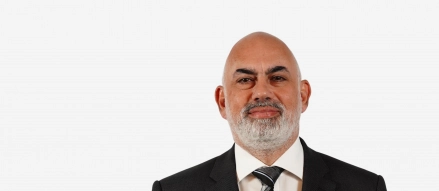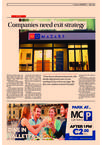
Companies need exit strategy
The problem, as Mr. Anthony Attard sees it, is that so many people in Malta set up businesses and nurture them, but are then reluctant to let them go. “It is not yet part of our culture to set up a business with an exit strategy already in mind. Quite the contrary. We still consider mergers and acquisitions to be a sign that our companies are under threat, rather than that the whole might be greater than the sum of its parts,” he said.
One of the main reasons for this is that so many of the companies in Malta are family-owned, with a founder who tends to remain involved even when the next generation has taken over. Mr. Attard believes that this model will have to change as it is no longer a foregone conclusion that children will even want to get involved in the family business, now that they have so many more options. “We need to change that culture and realise that we should be open to the idea of mergers and acquisitions, or even management buyouts. And that the time to do this is when the company is at its peak...”.
Mazars Malta is a great supporter of the concept of change. It was set up by Anthony Attard and Paul Giglio as an auditing firm 16 years ago, becoming part of Mazars, a network of 15,000 professionals in 73 countries, five years ago. It has been a phenomenal period, with double-digit growth year on year, reaching 25 per cent at one stage. The firm now employs around 50 people. “At some point in time this growth curve is going to flatten. To keep that upward trajectory, we needed to change our model,” he said.
Mazars Malta has been tweaking its operations from the start. Its clientele expanded from purely a local one to a 50/50 mix with foreign clients. Subsequently, auditing services were complemented by advisory services, and now represent less than half its revenue. The next step was to come up with a new strategy for the coming three years, creating ‘trusted business advisers’ supported by teams of experts not only in particular services like tax and compliance, but also in sectorial expertise aimed at insurance, financial services and gaming. This move will mean considerable investment in training and education – including of the four partners themselves. It is in situations like this that being part of an international organisation gives added value: they will be tapping into the Mazars University for assistance. And the teams will also need to grow, with recruitment underway of specialists at executive and managerial levels.
Times have changed since Mr Attard and Mr Giglio set up their company. The auditing profession around the world has been hit by major scandals like Parmalat and Enron, which forced audit firms to review their practices and adopt self-regulation. There have been a number of attempts to bring about more accountability and to prevent conflicts of interest – the latest being a curb on the advisory services that a firm can offer to a public-interest client, for which it also provides audit services.
“Malta has become a financial services center, with a significant amount of GDP coming from the gaming industry and from regulated MFSA sectors like investment services, insurance, and banking. Reputation is critical to a jurisdiction. So the role of the auditor is more important than ever,” he said. “Bad business, fraudulent business or businesses that go bust without warning will tarnish our reputation.” But in spite of the role of the audit firm as an audit services – for example, for small businesses.
Mr Attard is not quite convinced that this is the way forward, concerned that clients see audits as a cost and an obligatory burden, rather than as a value-added service. “Many people would not have audits given the choice, especially smaller ones where they do not feel that there is as much public interest,” he said. “And yet it is often these very same SMEs and owner-managed businesses (OMB) who do not have the in-house expertise to cope with all the regulations. They may not want an audit but there is no denying that they really tend to trust their auditors. We want to be able to use that trust to help them grow.”
Indeed, although Mazars Malta is passionate about its role as an auditor, the firm realises that it makes sound business sense to be able to give its clients a more holistic service. “We want to be the trusted business advisers, able to service a business from A to Z,” he said, adding that this would cover everything from advice on tax to human resources. “And we want to encourage and support internationalisation, as we believe that there is a huge amount of untapped potential.” However, it is not all about successful clients.
Mr. Attard’s experience over the past 16 years has made him well aware of the pitfalls of failure and believes that there are some important lessons to be learned. One of these is a better understanding of the role of the directors, saying that although the vast majority have a good grasp of their basic legal obligations, others all too often assume that auditors or accountants shoulder much of the burden. “We have seen things improve considerably over the years, thanks in no small part to the MFSA and other entities that have organised courses to explain directors’ roles. “There will always be some who are interested in the remuneration and have no intention of challenging the company’s operations or strategy. But thankfully we are seeing many more professionals – active or retired – who are being appointed as non-executive directors, and who understand their role as watchdogs,” he said.
The line between the directors’ responsibility and that of the auditors is also very controversial, especially when you start to consider whether the duty of care is only to the shareholder – the auditor’s client – or to a wider range of stakeholders. Following international audit failures, the profession had become defensive, but with time realised that it needed to review the situation. Now the code of ethics for auditors extends responsibility to all stakeholders like creditors, employees and even the Inland Revenue Department. However, in Malta, the legal obligations stop at the duty of care to the shareholder, as the court ruled in one particular case a few years ago.
“Times change and we have had to change with them. We have had to embrace change as auditors and we have had to change our business model. Unless you change, you will start to stagnate. That is the last thing we would want for our clients. And it is the last thing we would want for ourselves,” he said.
The article first appeared in The Business Observer on 2 July 2015.

